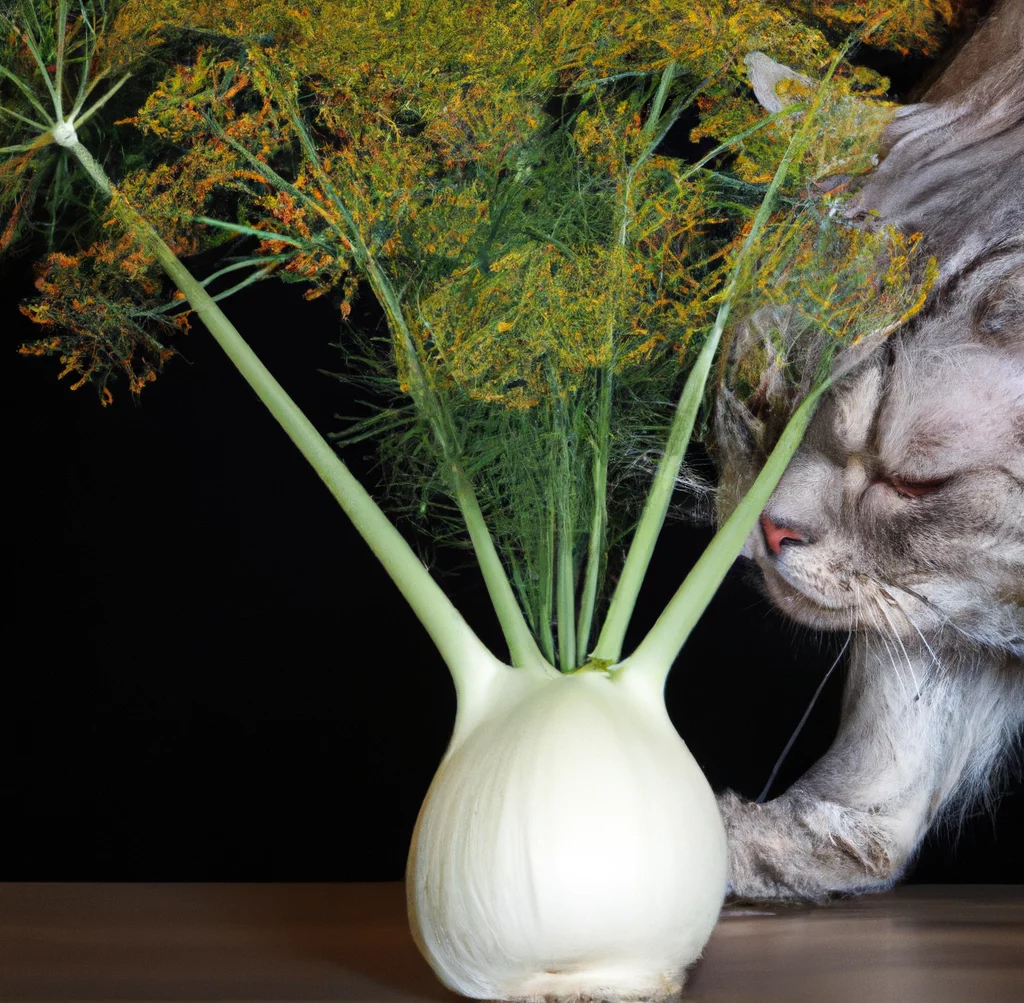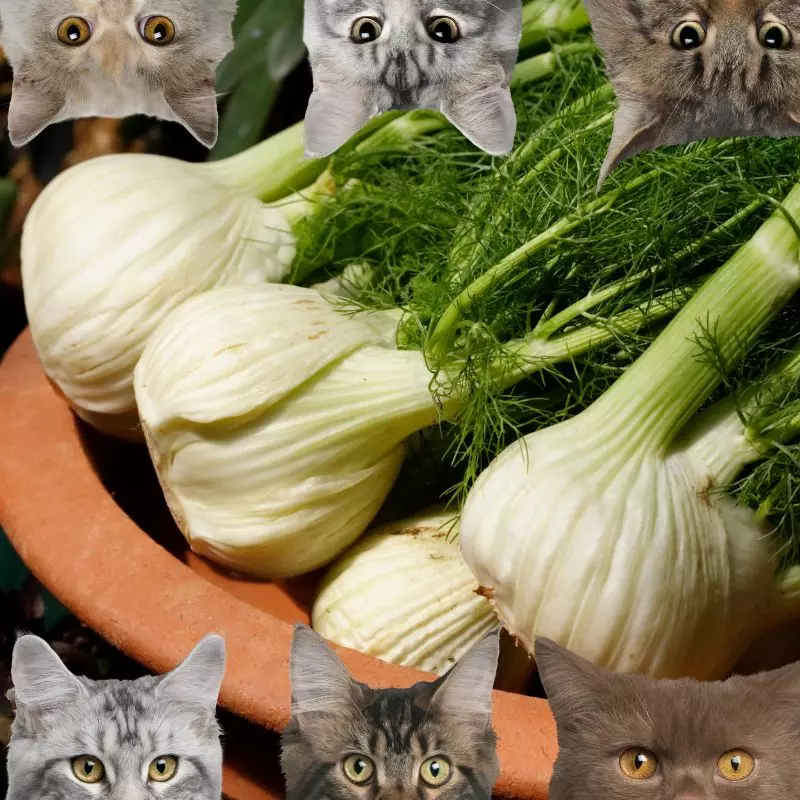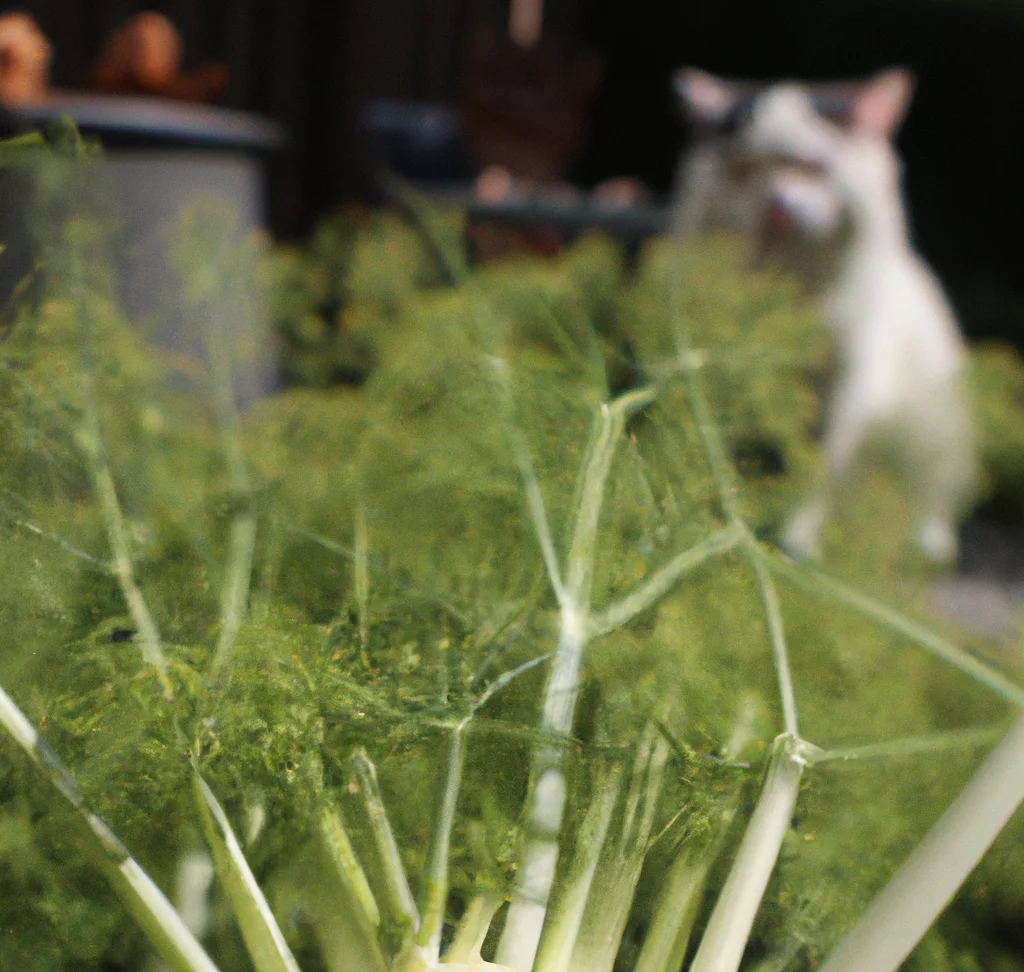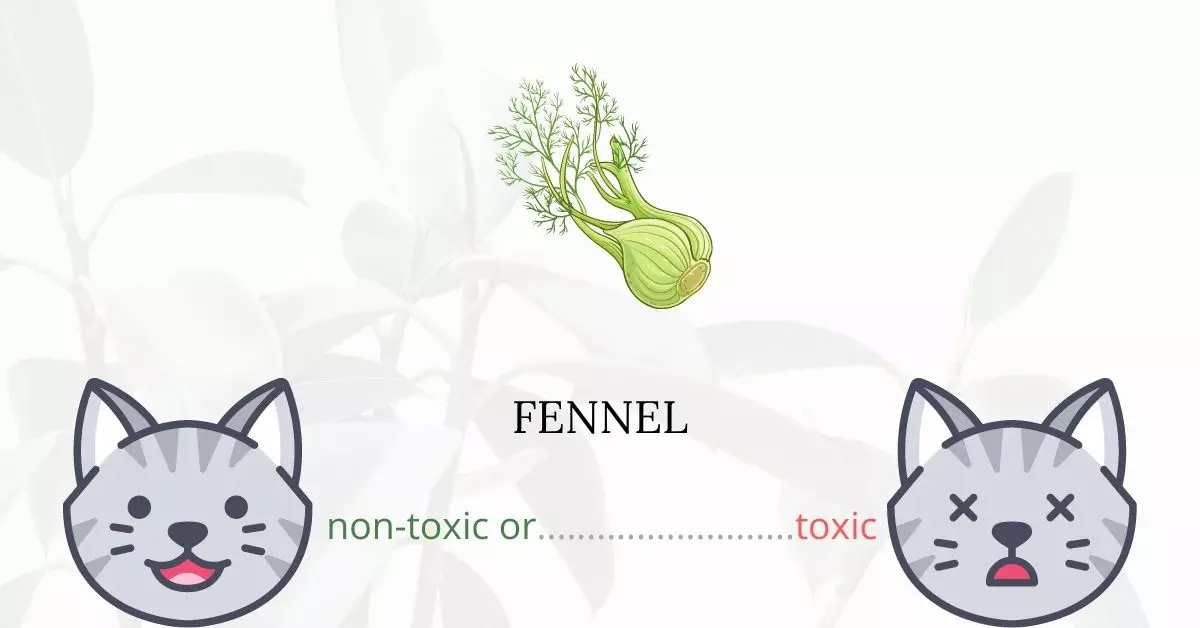Fennel is not toxic for cats; thus, it’s safe to have this plant in your home even if you have feline companions.
This article is a product of rigorous research and collaboration with a team of experienced DVMs (doctors of veterinary medicine). Their expertise, combined with our extensive investigations into high-authority sources like the ASPCA and PetMD, ensures that our readers receive accurate and up-to-date information on the potential risks associated with various plants, especially in this case, Fennel.
It’s worth noting that, according to the ASPCA (Animal Society for the Prevention of Cruelty to Animals), fennel is non-toxic for dogs, cats, and horses. While fennel is recognized as safe for felines, we will delve deeper into whether cats can safely consume this plant.
Can Cats Eat Fennel?

Cats can consume fennel, but only in trace amounts. Fennel can be incorporated into their food as it is not harmful in any form.
However, the ASPCA advises against using its concentrated oil since it has been linked to photosensitive dermatitis. Apart from eating extremely nutritious, it may help with digestion, reduce bloating and fluctuation, and freshen your cat’s breath. Fennel also has diuretic properties.
Cats may consume fennel seeds as well. It reduces stomach upset caused by your cat eating something he shouldn’t. For this, soak one teaspoon of fresh or dried seeds (fresh is ideal) in eight ounces of boiling water until cool.
If given in moderation, cats have no negative effects from eating funnel. But since cats cannot digest fennel leaves and stems, giving them too much might cause gastrointestinal issues such as diarrhea, stomach upset, and vomiting.
Also, if your cat is allergic to this herb, lactating, or pregnant, avoid using it, and use organic sources of this plant if feasible.
What is Fennel?

Fennel is botanically known as Foeniculum vulgare. It is a flowering hardy perennial plant species in the Apiaceae carrot family. The plant features yellow blossoms and feathery leaves. It is endemic to the Mediterranean shores but has become widely naturalized around the world. Fennel commonly grows on dry soils near the shoreline and on riverbanks.
Fennel is widely planted for its tasty, highly flavored leaves and fruits, both in its native region and outside. It gets its aniseed or licorice flavor from anethole, a fragrant molecule found in anise and star anise, and its taste and scent are comparable, albeit not always as strong.
Fennel has been naturalized in numerous areas, including northern Europe, the United States, southern Canada, and parts of Asia and Australia. It spreads easily through root crown and seed and is classified as an invasive plant and weed in Australia and the United States.
Keeping Cats Away From Fennel

If you’re unsure how much fennel to give your cat, consult with your veterinarian. Fennel is perfectly safe for cats, however, eating too much of it at once might cause stomach upset.
While most cats will not consume fennel, they will most likely play with it. Store your fennels in a container with a lid or somewhere your cat cannot access.
If you are growing fennels in your garden, you may try putting aluminum foil near them to drive away your cats. Aluminum foils’ texture and sound are disliked by cats.
Plants to Avoid For Your Cats
If you are a cat owner and unsure if the plants growing in your yard are harmful to your cats, check out this list of toxic plants for cats. You can also check our list of non-toxic plants for cats.





